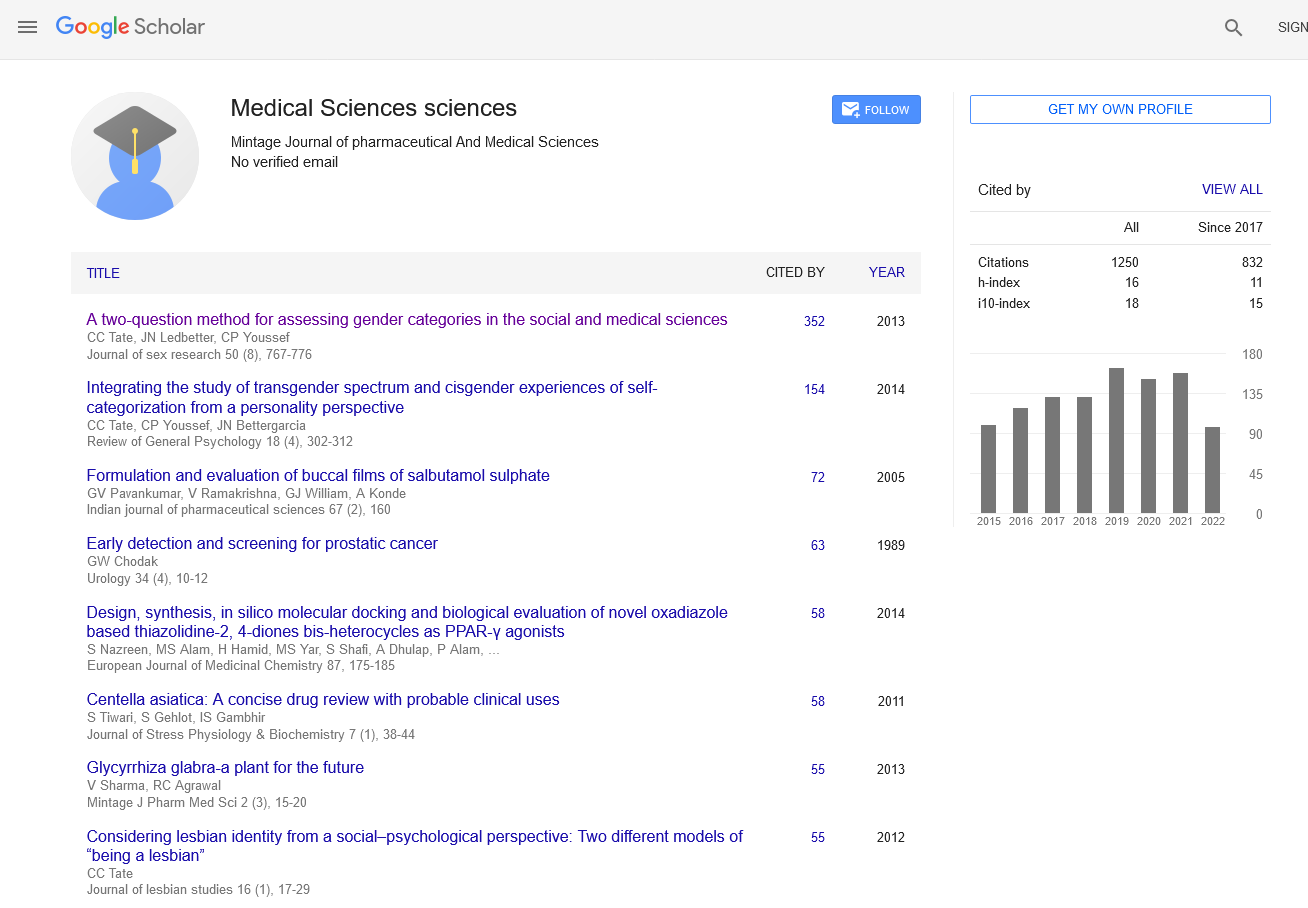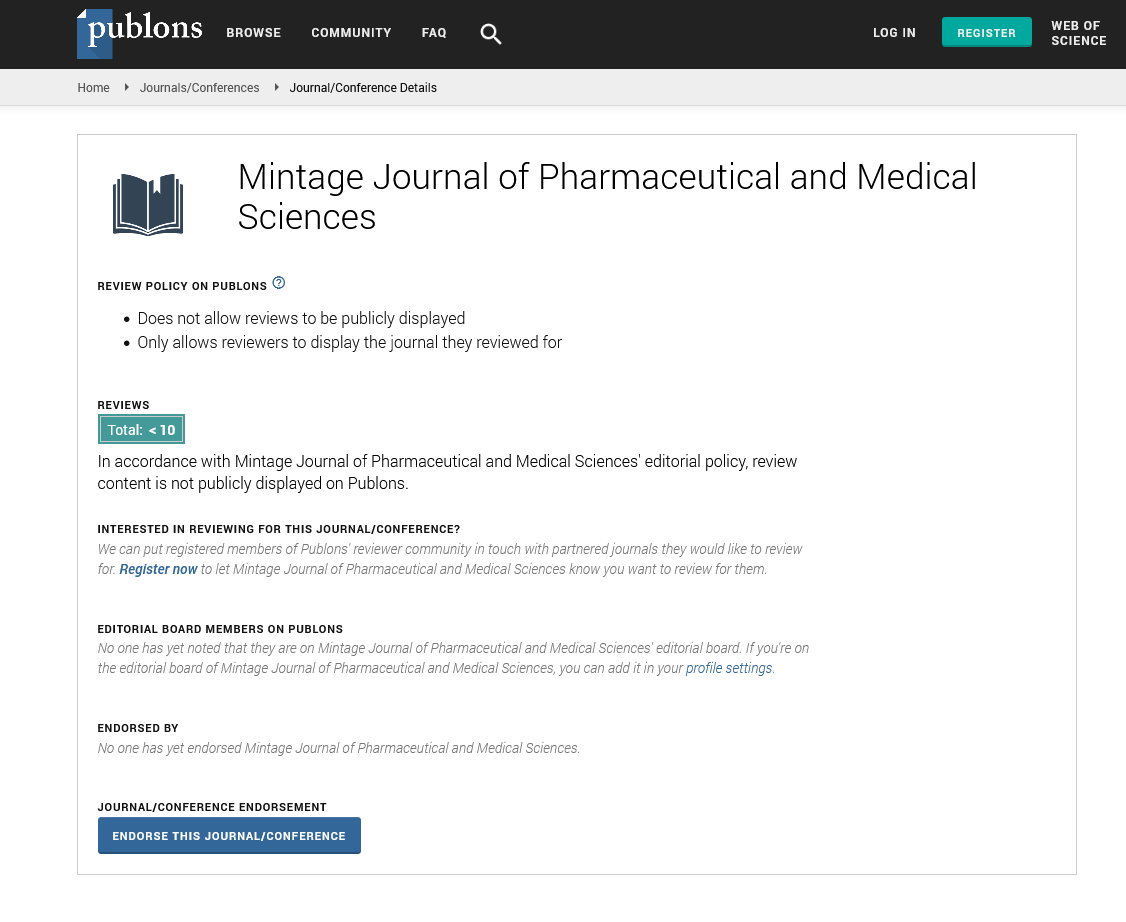The Role of AI and Big Data in Revolutionizing the Pharmaceutical Industry
Opinion - (2024) Volume 13, Issue 2
Introduction
The pharmaceutical industry is undergoing a significant transformation due to the integration of artificial intelligence (AI) and big data analytics. These advanced technologies are reshaping every aspect of the industry, from drug discovery and development to patient care, bringing about enhanced efficiency, accuracy, and outcomes.
Description
AI is particularly influential in accelerating the early stages of drug discovery. Traditionally, this process has been time-consuming and expensive, often taking over a decade and billions of dollars to bring a new drug to market. AI can streamline this by quickly analyzing vast datasets, including genetic information, clinical trial results, and scientific literature, to identify potential drug candidates. Machine learning algorithms can predict how different compounds will interact with specific biological targets, allowing researchers to prioritize the most promising candidates for further development. This not only reduces time and costs but also increases the likelihood of discovering effective treatments for complex diseases. Clinical trials are another area where AI and big data are making a profound impact. These technologies can enhance the design and execution of trials, improving their efficiency and accuracy. AI can analyze patient data to identify suitable candidates for clinical trials, ensuring that participants meet the necessary criteria and reducing recruitment time. Real-time monitoring of trial participants by AI systems can detect adverse effects or deviations from protocols promptly, enhancing patient safety and maintaining the integrity of trial data. Moreover, AI-driven analytics can interpret the vast amounts of data generated during trials, identifying trends and correlations that might be missed by traditional methods. The advent of big data and AI is also paving the way for personalized medicine, which tailors treatments to individual patients based on their genetic makeup, lifestyle, and other factors. By analyzing large datasets from diverse patient populations, AI can identify patterns and biomarkers that predict how different patients will respond to specific treatments. This approach reduces the trial-and-error process often associated with prescribing medications, allowing patients to receive treatments that are more likely to be effective for their unique conditions, leading to better outcomes and fewer side effects. AI and big data are not only revolutionizing treatment but also prevention. Predictive analytics can identify individuals at high risk of developing certain diseases, allowing for early intervention and preventive measures. For instance, by analyzing electronic health records, lifestyle data, and genetic information, AI can predict the likelihood of a patient developing chronic conditions such as diabetes or heart disease. Healthcare providers can then implement personalized prevention strategies, such as lifestyle modifications or early treatments, to mitigate these risks. This proactive approach has the potential to significantly reduce the burden of chronic diseases on healthcare systems and improve patients’ quality of life. Despite the numerous benefits, the integration of AI and big data in pharma also presents challenges. Data privacy and security are major concerns, as handling sensitive patient information requires stringent measures to protect against breaches and misuse. Additionally, the complexity of AI algorithms can make them difficult to interpret, raising issues of transparency and trust. Regulatory frameworks must evolve to address these challenges, ensuring that AI and big data applications comply with ethical standards and provide clear, actionable insights. Collaboration between industry stakeholders, regulators, and technology experts will be crucial in navigating these issues and unlocking the full potential of these technologies.
Conclusion
AI and big data are set to revolutionize the pharmaceutical industry, offering transformative benefits across drug discovery, clinical trials, personalized medicine, and disease prevention. While challenges remain, the potential for these technologies to improve efficiency, accuracy, and patient outcomes is immense. As the industry continues to embrace these innovations, the future of pharma looks promising, with the potential for more effective and personalized healthcare solutions than ever before.
Author Info
Ana Marques*Received: 29-May-2024, Manuscript No. mjpms-24-141867; , Pre QC No. mjpms-24-141867 (PQ); Editor assigned: 31-May-2024, Pre QC No. mjpms-24-141867 (PQ); Reviewed: 14-Jun-2024, QC No. mjpms-24-141867; Revised: 19-Jun-2024, Manuscript No. mjpms-24-141867 (R); Published: 26-Jun-2024, DOI: 10.4303/2320-3315/236019
Copyright: © 2024 This is an open access article distributed under the terms of the Creative Commons Attribution License, which permits unrestricted use, distribution, and reproduction in any medium, provided the original work is properly cited.

ISSN: 2320-3315
ICV :81.58

